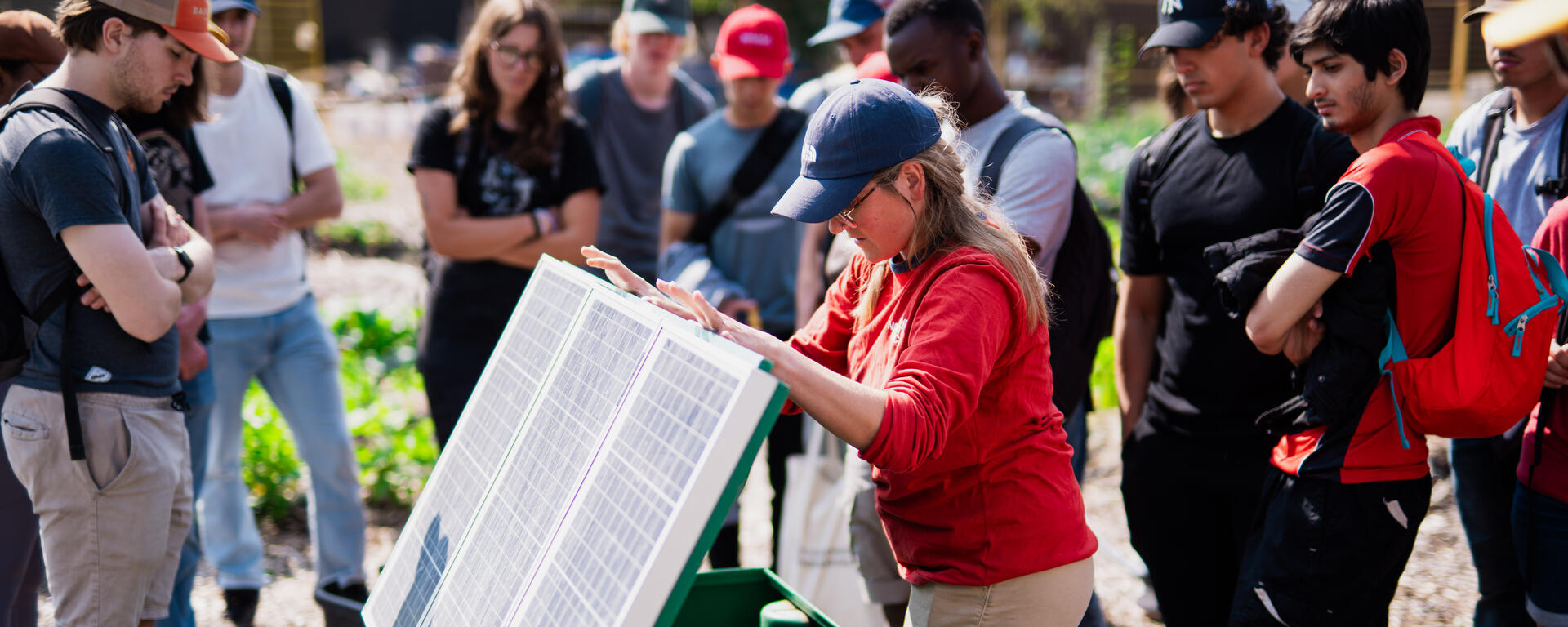What is sustainable systems engineering?
Sustainable Systems Engineering (SUSE) uses engineering tools to advance sustainability and regenerative technical practices and to design, integrate, and manage complex systems over their life cycles with the goal of environmental, economic, and social sustainability. The program will train the next generation of engineers that will have the knowledge, awareness and competencies needed to manage and implement engineering solutions that minimize negative climate impacts, strive to achieve at least net neutral outcomes that, ideally, are restorative.
We are educating changemakers with a strong sense of social responsibility, using a holistic approach to engineering, that includes big picture thinking, creativity, communications, and teamwork across disciplines.
We are building a vibrant education and research environment that celebrates (bio)diversity and fosters technological stewardship and innovation with systems thinking at its core with all eyes on creating a cleaner, healthier planet.
Today's roles
Sustainable Systems Engineers are global citizens that help advance our society to a low carbon and resilient future where all life can flourish. From life-cycle assessment to system dynamics modelling to design for a circular economy, graduates will have the know-how to build an inclusive and thriving society for all within the means of the planet.
Future transdisciplinary roles
As sustainable systems engineering continues to grow, graduates can look forward to a diverse range of career opportunities in areas such as cleantech and renewable energy (solar, wind, geothermal), green communities, infrastructure and sustainable design, sustainable food, agriculture, and bioresources solutions, supply chain management, public utility analysis and regulation, and as sustainability experts on a wide range of engineering teams.

